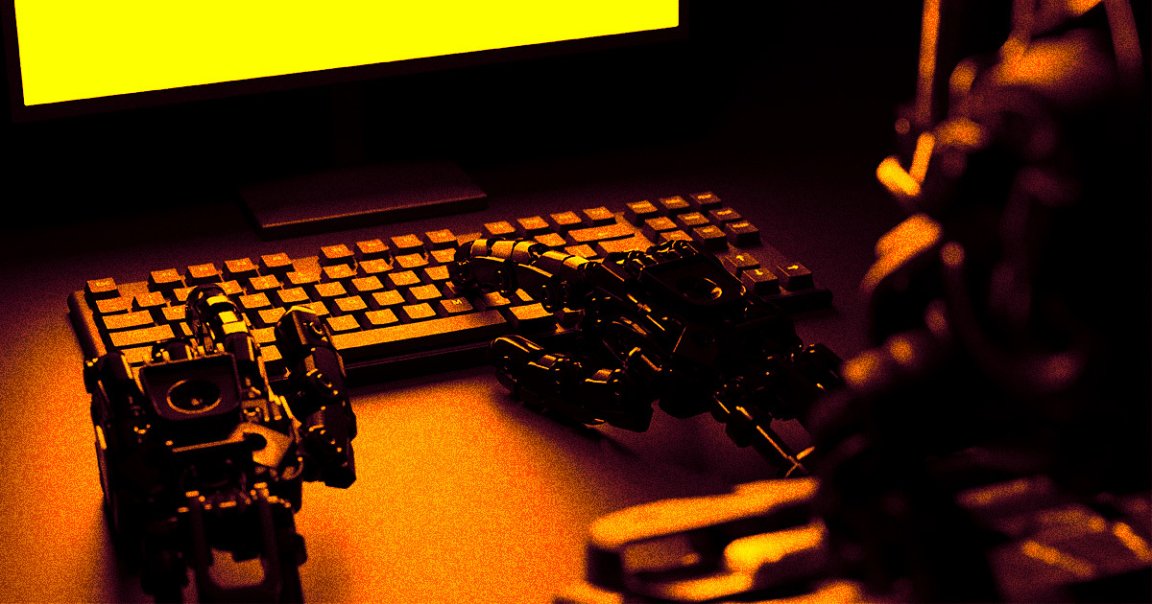
Generative Ghostwriter
The latest recipient of one of Japan’s most prestigious literary awards, the Akutagawa Prize, has admitted to using AI to write parts of her novel, The Times reports.
After receiving the award at a ceremony on Wednesday, novelist Rie Kudan disclosed that she’d “made active use of generative AI like ChatGPT in writing this book.”
“I would say about five percent of the book quoted verbatim the sentences generated by AI,” she added.
Titled The Tokyo Tower of Sympathy, Kudan’s work was praised by perhaps unwitting judges, with one hailing it as “flawless.”
But with such a significant portion of the novel being provocatively revealed as produced by a chatbot, those judges may now feel cheated, as debate over the use of generative AI in the arts rages on.
Art Imitates Life
Kudan’s novel takes place in an alternate future in which AI has become a central part of human life. It follows an architect who helped build a high-rise tower in Shinjuku as a cushy place for criminals to be housed. Kudan explores her character’s discomfort with society’s tolerance of these criminals, as well as the pervasiveness of generative AI, according to News on Japan.
Perhaps she felt that these relevant ideas gave her artistic license to use the very same technology she implicates to write the story (or maybe she’s fibbing to illustrate a point). At the ceremony’s award, Kudan elaborated on her motivations by saying she wanted to explore how “soft and fuzzy words” can muddle our ideas of justice, The Times reported.
“In recent years, we find ourselves in a situation in which words have expanded without limit, and permitted unlimited interpretations,” Kudan said, per The Times. “I want to use the words with care, and to think about the positive and negative aspects of language.”
Awards Short Circuit
This isn’t the first time that an award for the arts was nabbed by a purportedly AI-generated submission. Last year, a winner of the Sony World Photography Awards refused to accept their prize after declaring that their supposed “photo” was an AI-generated fake and that their stunt was done to accelerate debate over the issue.
No less controversial was the winner of 2022’s Colorado State Fair’s prize for digital art, which also turned out to be AI-generated.
Beyond existential woes the tech poses to artists, much of the controversy centers on how these generative AI models were trained on tons of copyrighted material — not to mention potentially anything ever posted on the internet.
On that front, furious authors have been leading the charge in the courtroom. Big names like John Grisham and George RR Martin have sued OpenAI for ingesting their writing to train ChatGPT without permission or compensation.
The outcomes of these cases could have huge ramifications on the legality and the financial feasibility of the tech. But for now, awards like these will continue to serve as battlegrounds on how AI is accepted in the art world.
More on generative AI: Sam Altman Says AI Using Too Much Energy, Will Require Breakthrough Energy Source